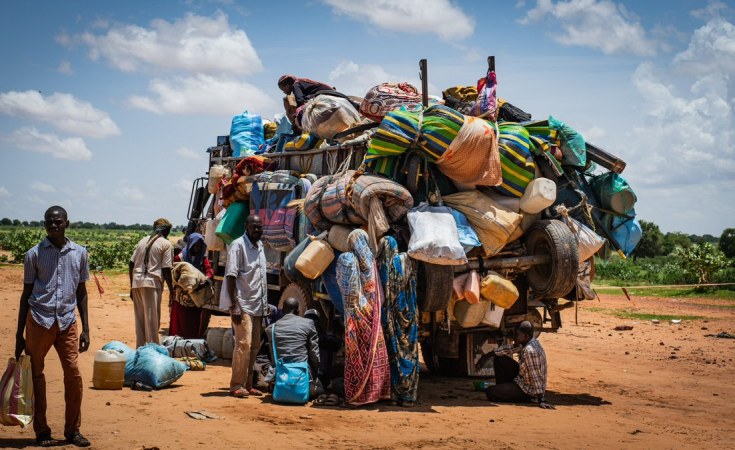United Nations — A senior U.N. humanitarian official said Tuesday that the confirmation of famine in parts of Sudan's Darfur region must serve as a wakeup call for the international community.
"There must now be a coordinated diplomatic effort to address the widespread operational challenges and impediments that aid agencies are facing, as we try to reach the millions of Sudanese people in abject need," said Stephen Omollo, World Food Program's assistant executive director.
WFP and other humanitarian agencies and organizations have been warning since March that famine was imminent. On Friday, their worst fears were realized when international food monitors confirmed that more than a year of war has pushed parts of North Darfur into famine and 14 other areas are "at risk of famine" in the coming months.
Fighting between rival generals leading the paramilitary Rapid Support Forces and the Sudanese Armed Forces for the last 15 months has propelled the country into the current humanitarian crisis, in which 26 million people are in crisis levels of hunger across Sudan.
Omollo, who briefed an emergency meeting of the U.N. Security Council convened to discuss the confirmation of famine, said more than 750,000 people are currently in catastrophic levels of hunger, and an estimated 730,000 children are projected to suffer the most life-threatening form of malnutrition.
"A cease-fire remains the only sustainable solution that will prevent the further spread of famine," he said in a video link from WFP headquarters in Rome.
Edem Wosornu, the director of operations and advocacy for the U.N. Department of Humanitarian Affairs, told the council that the announcement of famine should "stop all of us cold."
"Because when famine happens, it means we are too late," she said. "It means we did not do enough. It means that we, the international community, have failed."
She said the United Nations and its partners are exploring every avenue to scale up aid to the most affected communities, including the use of airdrops, which are a method of last resort for humanitarians because of their high cost and inefficiency.
"But we cannot go very far without the access and resources we need," she said. "Aid workers in Sudan continue to be harassed, attacked and even killed. Convoys of life-saving supplies such as food and medicine, as well as fuel, have been subjected to looting and extortion. And this, of course, must stop."
Humanitarians say they face constant obstacles from both warring parties, including insecurity, restrictions on cross-border and frontline access, visa delays, delayed permissions, looting and other difficulties in reaching vulnerable communities.
Access needed
The United Nations has repeatedly called for the opening of the Adre border crossing between Chad and West Darfur, so they can reach the most desperate people in North Darfur. The government of Sudan has been reluctant to open the crossing, accusing its rival the RSF of using Adre to smuggle in arms, fuel and logistical support under cover of humanitarian aid.
Sudanese ambassador Al-Harith Mohamed said his government is not blocking aid and suggested that humanitarians should use another crossing, at Tine, on the northwest border of Sudan with Chad.
"It has been authorized to serve as a hub for the collection of aid to be distributed to the rest of region," he said. He noted that if Adre needed to be open on an emergency basis, it should first be approved by the government.
Mohamed also disputed that there is famine in Darfur, saying the declaration was made as a political "punishment" because they will not open the Adre crossing.
He said a local humanitarian commission recently visited the displacement camp in North Darfur where the experts say famine has taken hold and found the "situation is stable" and that there have been no deaths or starvation among the camp population.
U.N. and international aid groups, medical workers and civil society organizations have been reporting and raising the alarm for months on hunger-related deaths, particularly of babies and small children.
On August 14, the United States is convening proximity talks in Geneva, Switzerland, and has invited both the leaders of the RSF and SAF to attend in order to discuss a potential cease-fire.


